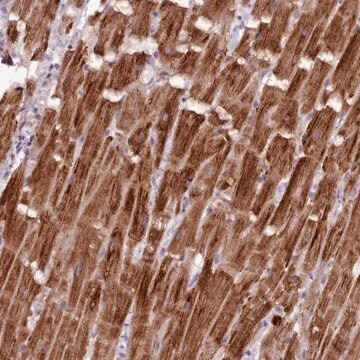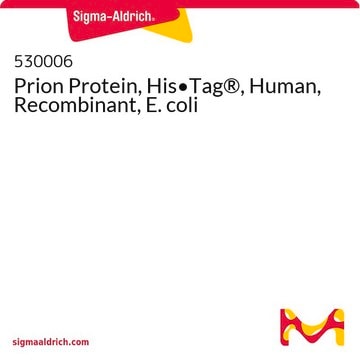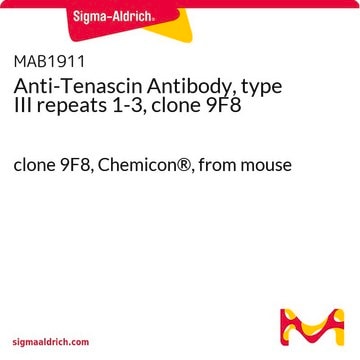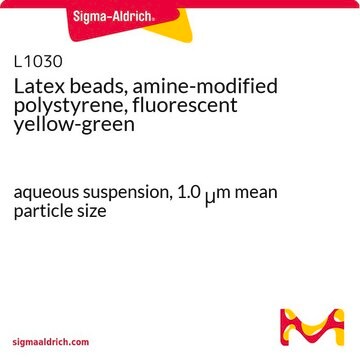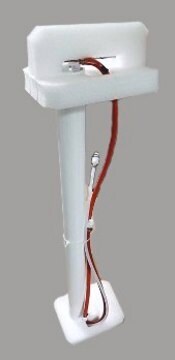MABF267
Anti-Cochlin Antibody/COCH, clone 9A10D2
clone 9A10D2, from rat
Synonym(e):
Cochlin, COCH-5B2
About This Item
Empfohlene Produkte
Biologische Quelle
rat
Qualitätsniveau
Antikörperform
purified immunoglobulin
Antikörper-Produkttyp
primary antibodies
Klon
9A10D2, monoclonal
Speziesreaktivität
human, mouse
Methode(n)
immunohistochemistry: suitable
western blot: suitable
Isotyp
IgG2aκ
NCBI-Hinterlegungsnummer
UniProt-Hinterlegungsnummer
Versandbedingung
dry ice
Posttranslationale Modifikation Target
unmodified
Angaben zum Gen
human ... COCH(1690)
Allgemeine Beschreibung
Immunogen
Anwendung
Entzündung & Immunologie
Immunoglobuline & Immunologie
Western Blotting Analysis: A representative lot detected Cochlin/COCH in spleen and lymph node from WT and COCH knockout mice (Py, B.F., et al. (2013). Immunity. 38:1063-1072).
Western Blotting Analysis: A representative lot detected Cochlin/COCH in protein cleaved into p18 and p8 products. (Py, B.F., et al. (2013). Immunity. 38:1063-1072).
Immunohistochemistry Analysis: A 1:50 dilution from a representative lot detected Cochlin/COCH in mouse spleen tissue.
Immunohistochemistry Analysis: A representative lot detected Cochlin/COCH in spleen and lymphnode from WT and Coch knockout mice (Py, B.F., et al. (2013). Immunity. 38:1063-1072).
Qualität
Western Blotting Analysis: 1.0 µg/mL of this antibody detected Cochlin/COCH in 10 µg of mouse spleen tissue lysate.
Zielbeschreibung
Physikalische Form
Lagerung und Haltbarkeit
Sonstige Hinweise
Haftungsausschluss
Not finding the right product?
Try our Produkt-Auswahlhilfe.
Lagerklassenschlüssel
12 - Non Combustible Liquids
WGK
WGK 1
Flammpunkt (°F)
Not applicable
Flammpunkt (°C)
Not applicable
Analysenzertifikate (COA)
Suchen Sie nach Analysenzertifikate (COA), indem Sie die Lot-/Chargennummer des Produkts eingeben. Lot- und Chargennummern sind auf dem Produktetikett hinter den Wörtern ‘Lot’ oder ‘Batch’ (Lot oder Charge) zu finden.
Besitzen Sie dieses Produkt bereits?
In der Dokumentenbibliothek finden Sie die Dokumentation zu den Produkten, die Sie kürzlich erworben haben.
Unser Team von Wissenschaftlern verfügt über Erfahrung in allen Forschungsbereichen einschließlich Life Science, Materialwissenschaften, chemischer Synthese, Chromatographie, Analytik und vielen mehr..
Setzen Sie sich mit dem technischen Dienst in Verbindung.